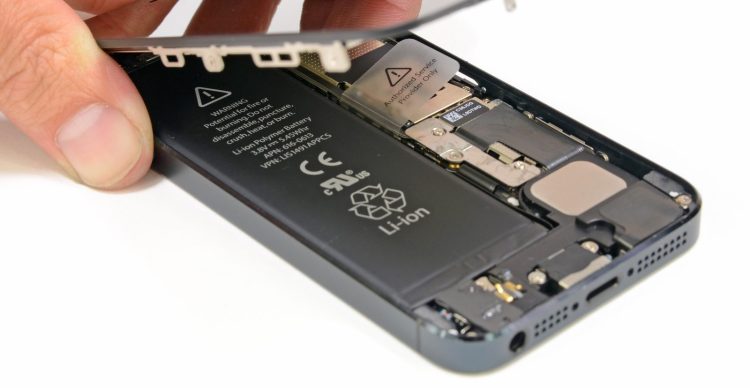California Assemblymember Susan Talamantes Eggman has introduced the California Right to Repair Act, marking the 19th state to propose pro-consumer repair legislation this year. Though similar bills have been proposed elsewhere without success, supporters give California a better chance of actually passing Right to Repair, while at least one lobbying group has already spoken out against it.
The Right to Repair Act would require electronics makers to offer repair information and parts to third-party repair providers and product owners. Its goal is to empower customers to repair their own devices, or obtain repairs from companies that aren’t necessarily authorized by the original manufacturer.
Given that many Right to Repair bills have been proposed in recent years only to stagnate in state legislatures, we asked iFixit what made California’s bill more likely to pass. “California has a long history of pioneering pro-consumer and pro-environment legislation,” said iFixit’s Kay-Kay Clapp, citing electronics recycling and plastic bag laws. “That gives this bill some legs. Additionally, this bill is supported by a broad coalition of folks with a track record of success — the EFF and Consumers Union.”
“People shouldn’t be forced to ‘upgrade’ to the newest model every time a replaceable part on their smartphone or home appliance breaks,” added Mark Murray, executive director of Californians Against Waste. “These companies are profiting at the expense of our environment and our pocketbooks as we become a throw-away society that discards over 6 million tons of electronics every year.”
June 5th: The AI Audit in NYC
Join us next week in NYC to engage with top executive leaders, delving into strategies for auditing AI models to ensure fairness, optimal performance, and ethical compliance across diverse organizations. Secure your attendance for this exclusive invite-only event.
Eighteen other states have filed Right to Repair bills, including Hawaii, Illinois, Iowa, Kansas, Massachusetts, Minnesota, Missouri, Nebraska, New Hampshire, New Jersey, New York, North Carolina, Oklahoma, Tennessee, Vermont, Virginia, Washington, and Wyoming. Though all of the bills apply across multiple manufacturers and devices, the Right to Repair movement has been encouraged in recent months by the iPhone battery performance debacle, which increased concerns over planned obsolescence, and led consumers to seek iPhone repairs over replacements. Spurred by constituents angry with Apple’s handling of the iPhone issue, Washington’s version of the legislation proposed an outright ban on devices with hard-to-replace batteries.
Still, major tech companies have registered concerns over the legislation, initially citing repair-challenging engineering innovations and the potential dangers of opening devices as reasons not to encourage consumer or third-party tampering. A new vector has appeared over the past few weeks with the arrival of a lobbying group called the Security Innovation Center, apparently backed by the Consumer Technology Association, CTIA, and other technology associations. The group seeks to undermine Right to Repair proposals, in part by citing privacy and security risks. To that end, the SIC’s Tim Sparapani said in a statement today:
Laws and regulations should first and foremost protect consumers from bad actors. We are concerned that the proposed bill, written with the best of intentions, is laced with unintended consequences that could lead to the creation of more vulnerabilities for California consumers. While I respect the opinions of my fellow consumer advocates, the privacy and cybersecurity risks outweigh any potential benefits.
Boing Boing and Security Ledger have suggested that the SIC is conflating privacy, security, and device repair concerns to reduce consumer support for Right to Repair proposals. Only time will tell whether any of these bills becomes law.

